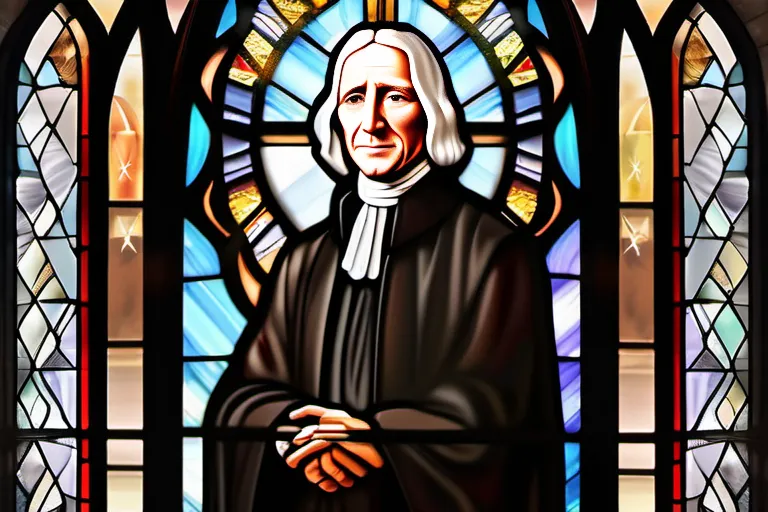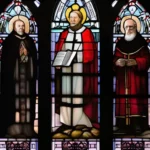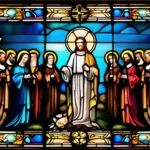Explore the history, doctrine, and practices of the Methodist Church in this detailed guide.
The Methodist Church is a major denomination within Christianity, with a rich history and unique beliefs. In this article, we will delve into the origins, doctrines, and practices of the Methodist Church to provide you with a comprehensive understanding of this important religious tradition.
The Origins and History of the Methodist Church
The origins of the Methodist Church can be traced back to the Anglican Church, but it was the spiritual awakening led by John Wesley that set the church on a distinct path. Imagine for a moment, wandering through the dark and dreary corridors of 18th-century England—how did these somber halls transform into bright lights of spiritual renewal?
John Wesley, an Anglican priest, faced a profound crisis in his faith during his journey to Georgia, USA. Upon returning to England, he encountered social injustices, witnessing the harsh realities that many people endured. It was here that the seeds of Methodism were sown, as Wesley began organizing societies for religious improvement, where individuals could come together to study the Bible and support one another in their spiritual journeys.
Initially, these societies were met with resistance from established churches, which saw them as a threat. However, the grassroots appeal of Wesley’s teachings resonated deeply with the common people who were searching for something more than traditional religious practices. The Methodist message of personal holiness and social activism quickly spread like wildfire through communities.
The Methodist Church was not just about individual salvation; it also emphasized communal responsibility. This dual focus on personal piety and social reform made Methodism unique among other Christian denominations. From the very beginning, Wesley encouraged his followers to engage in acts of charity and social justice, setting the stage for what would become a hallmark of Methodist practice.
Today, as we reflect on the history of the Methodist Church, it’s important to remember that its roots lie in a time of deep spiritual exploration and social unrest. Just like the branches of a tree stretch out to provide shelter and nourishment, the Methodist movement spread across the globe, offering hope and guidance to countless souls seeking spiritual fulfillment.
Methodist Doctrine: Key Beliefs and Teachings
The Methodist Church, like many religious institutions, has its roots deeply embedded in the rich tapestry of Christian doctrine and history. But what exactly does it mean to be Methodist? How do their beliefs diverge from mainstream Christianity, or are they just a variation on the same theme? To answer these questions, we must delve into the core teachings that define Methodism.
Grace: The Foundation of Salvation
In Methodist doctrine, grace is not just a theological term but a powerful force that transforms lives. It’s often described as God’s unmerited favor towards humanity. This concept is explored in the famous Wesleyan Quadrilateral, which includes scripture, tradition, reason, and experience. But what does this mean for everyday Methodists? Does it imply that they can rely on divine grace alone without good works?
Faith and Works: A Balanced Approach
The Methodist emphasis on faith and works is a testament to their belief in the interdependence of these two concepts. John Wesley, the founder of Methodism, famously stated, ‘Do all the good you can.’ This means that while faith in God’s grace is crucial, so too are acts of charity and service towards others. It’s like planting seeds (faith) and then tending to them until they grow into a lush garden (good works). Can one truly have one without the other?
Communion with God
A key aspect of Methodist practice is the belief in communion with God. This involves not just regular church attendance but also personal devotions and an intimate relationship with Christ. It’s akin to a lifelong journey of spiritual growth, where believers strive to understand and live out their faith every day.
The Holiness Doctrine
Methodists embrace the holiness doctrine, which calls for a holy life lived in accordance with God’s will. This is not about perfection but about striving towards it, recognizing that true holiness comes from Christ’s grace and not human effort alone.
A Call to Action
In essence, Methodist beliefs revolve around living out one’s faith in the world. The church isn’t just a place of worship; it’s a community that seeks to make a difference in the lives of others. How can you be part of this mission? What actions will you take today to serve and love your neighbors as yourself?
The Methodist Church’s teachings offer a profound path for spiritual growth, emphasizing grace, faith, and good works. It challenges us to live our lives with purpose, striving towards holiness while being grounded in the transformative power of God’s grace.
The Role of John Wesley in the Methodist Church
Imagine stepping back into history, to the early 18th century, where a young man named John Wesley was struggling with his faith and searching for answers in The Bible. Could it be that his journey would not only transform him but also give birth to one of the largest Christian denominations worldwide? John Wesley’s life story is intertwined with the Methodist Church like threads in a tapestry, each thread representing an important phase in its development.
John Wesley was born into a family deeply rooted in religious piety and scholarship. He and his brother Charles, both clergy members of the Society for the Propagation of the Gospel, traveled to America but faced numerous challenges that led them back to England. It was during their return journey that they experienced an emotional conversion, which they termed a ‘wondrous work of grace.’ This pivotal moment set the stage for what would become known as Methodism.
Wesley’s approach to ministry was revolutionary. He believed in accessible and transformative religion, emphasizing practical living and personal holiness. His message spread rapidly through his itinerant preaching, small groups called classes, and the publication of influential works like ‘A Plain Account of Christian Perfection.’ These methods not only engaged people deeply but also made the church more accessible to a broader audience, including the working class.
John Wesley’s influence on the Methodist Church extended beyond his lifetime. His focus on spiritual discipline, personal piety, and social justice laid the foundation for a church that remains committed to both spiritual growth and social reform today. From abolition of slavery to support of civil rights, Methodists have always sought to apply their faith in practical ways that make a difference in the world.
As we reflect on John Wesley’s impact, it’s hard not to see him as the architect who designed the blueprints for the Methodist Church we know today. His vision and perseverance continue to inspire countless individuals and communities around the globe to live out their faith in meaningful ways.
Methodist Practices: Worship, Sacraments, and Discipline
Imagine walking into a Methodist Church, surrounded by familiar hymns and the comforting presence of fellow believers. What exactly makes this worship experience unique? To understand Methodist practices, let’s explore how prayer, communion, and small group meetings intertwine to form a rich spiritual tapestry.
Prayer: In Methodism, prayer is not just about personal petitions; it’s a communal act of seeking divine guidance and fellowship. Picture a circle of believers gathered around a table, their voices blending into a harmonious chorus as they lift their hearts to God in shared supplication. This practice fosters unity and strengthens the spiritual bonds among members.
Communion: Communion, or the Lord’s Supper, holds a special place in Methodist worship. It’s more than just a ritual; it’s a powerful reminder of Christ’s sacrifice and an opportunity for believers to come together as one body. As participants share bread and wine, they symbolically partake in the life, death, and resurrection of Jesus Christ, reinforcing their faith and commitment.
Small Group Meetings: These gatherings are like microcosms of the larger Methodist community, providing a space for deeper spiritual exploration and mutual support. Think of them as nurturing gardens where individuals can grow spiritually in a safe environment. Through sharing experiences and insights, members find encouragement, accountability, and a sense of belonging.
Through these practices, Methodism not only fosters individual faith but also builds a strong community grounded in shared beliefs and values. These elements are crucial in shaping the identity and mission of the Methodist Church as it continues to reach out and serve its global congregation.
The Global Impact of the Methodist Church
The global impact of the Methodist Church is like a ripple effect, spreading far beyond its origins in 18th-century England. From humble beginnings under the leadership of John and Charles Wesley, the movement quickly evolved into a powerful force for social change and spiritual growth. As we trace this journey, one can’t help but wonder how these two brothers managed to ignite such a transformative fire.
The Methodist Church expanded rapidly across Europe, North America, and eventually around the world. It’s fascinating to consider how a small group of believers in England grew into a global movement with millions of members today. Imagine planting seeds in one garden, only to see them grow into lush forests on different continents—this is the growth story of Methodism.
In Africa, for instance, the Methodist Church has played a crucial role in education and healthcare initiatives, often stepping in where governments have fallen short. One could argue that its presence has been akin to a lifeline for many communities, providing not just spiritual guidance but also practical support during times of crisis. Can you imagine what life would be like without such a robust network of churches and schools?
Similarly, the Methodist Church in Asia has adapted and thrived, facing challenges as diverse as language barriers and cultural differences. It’s remarkable how these churches have managed to maintain their core beliefs while also embracing local customs and traditions. The metaphor here is that of a chameleon, changing its color but remaining true to its essence.
As we move into the 21st century, the Methodist Church continues to spread its message across continents. It’s not just about spreading doctrine anymore; it’s about creating a better world through education, health care, and social justice. This church has shown that its impact is not limited by borders or languages—it transcends all barriers.
Contemporary Issues Facing the Methodist Church
Contemporary Issues Facing the Methodist Church: A Comprehensive Guide
As we delve into the current challenges facing the Methodist Church, one cannot help but wonder how these issues impact the very core of its faith and community. In a world where opinions on sexuality and social justice are polarizing, how does the Methodist Church navigate these complex waters?
The question of sexuality is particularly contentious within the Methodist Church. While many advocate for greater inclusivity and acceptance of diverse sexual orientations, others argue that traditional values must be upheld. This internal debate often leads to divisions, with some congregations welcoming discussions on LGBTQ+ rights while others remain steadfast in their opposition. It’s a delicate balancing act, like trying to hold two opposing magnets just right; too close, and the church risks alienating part of its congregation; too far, and it may miss out on reaching those seeking acceptance.
Similarly, social justice issues present another set of challenges. The Methodist Church has a long history of advocating for equality and justice, but in an era where these issues are more visible than ever, the church finds itself at a crossroads. Should it take a more vocal stance on social injustices, potentially alienating some members? Or should it maintain a focus on spiritual growth, avoiding overt political statements?
The role of women in leadership is another issue that continues to evolve within the Methodist Church. While progress has been made, with women now serving as pastors and leaders, there are still debates about the extent of their involvement. Some argue for complete equality, while others believe traditional roles should be maintained. This debate mirrors broader societal discussions on gender roles but adds a unique dimension when viewed through the lens of church leadership.
As we explore these contemporary issues, it’s clear that the Methodist Church must find a way to remain relevant and united in its mission. It’s like trying to build a ship that can sail smoothly through turbulent waters; the church needs to be agile yet anchored in its core beliefs, ready to adapt while staying true to its principles.
Conclusion
 By the end of this guide, you will have gained valuable insights into the Methodist Church’s beliefs and practices. Whether you are a member, a curious observer, or simply interested in learning more about Christianity, this article is an essential resource for understanding the Methodist Church.
By the end of this guide, you will have gained valuable insights into the Methodist Church’s beliefs and practices. Whether you are a member, a curious observer, or simply interested in learning more about Christianity, this article is an essential resource for understanding the Methodist Church.











